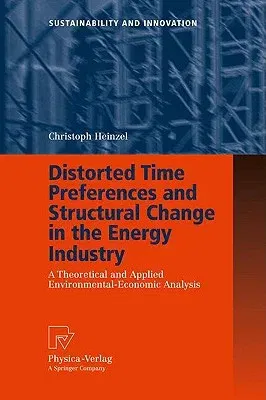Christoph Heinzel
(Author)Distorted Time Preferences and Structural Change in the Energy Industry: A Theoretical and Applied Environmental-Economic Analysis (2009)Hardcover - 2009, 15 May 2009

Qty
1
Turbo
Ships in 2 - 3 days
In Stock
Free Delivery
Cash on Delivery
15 Days
Free Returns
Secure Checkout

Part of Series
Sustainability and Innovation
Print Length
166 pages
Language
English
Publisher
Physica-Verlag
Date Published
15 May 2009
ISBN-10
3790821829
ISBN-13
9783790821826
Description
Product Details
Author:
Book Edition:
2009
Book Format:
Hardcover
Country of Origin:
NL
Date Published:
15 May 2009
Dimensions:
23.88 x
16 x
1.52 cm
ISBN-10:
3790821829
ISBN-13:
9783790821826
Language:
English
Location:
Heidelberg
Pages:
166
Publisher:
Weight:
430.91 gm